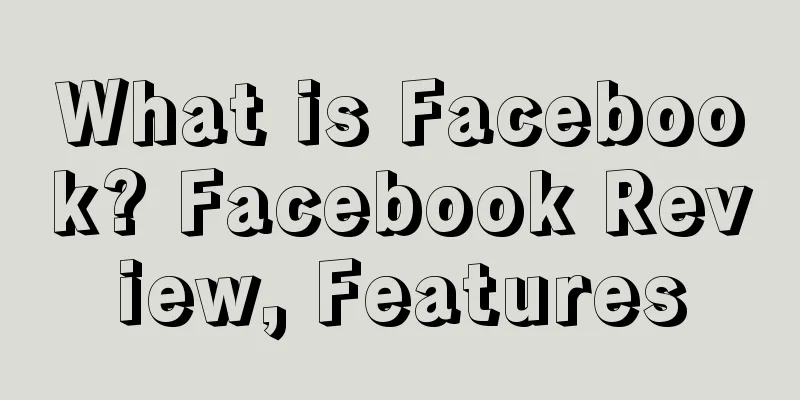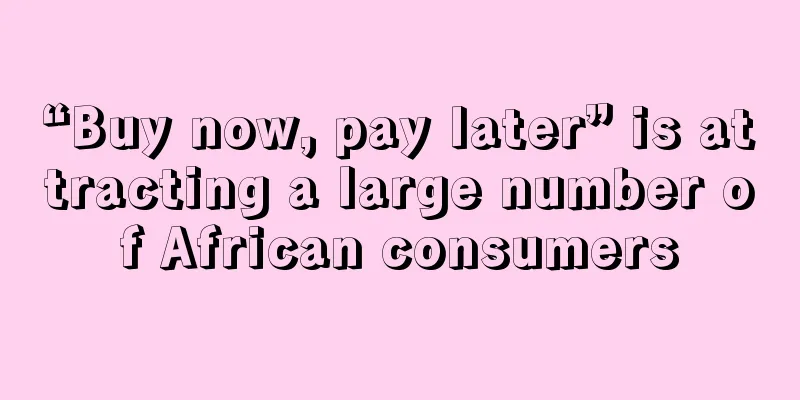What is Facebook? Facebook Review, Features

|
Facebook (FB) is a social networking service and social media website originated from the United States. It was founded on February 4, 2004 by Mark Zuckerberg, and is headquartered in Menlo Park, California, USA. In its early days, it was originally called "the facebook", which was inspired by the nickname "face book" for the address book (or roster) containing photos and contact information provided to students by American high schools. There is currently no official Chinese translation, and the more widely used one is Facebook.
About Facebook Facebook was founded by Mark Zuckerberg and his Harvard roommates on February 4, 2004. Initially, Facebook membership was limited to Harvard students, but later it was expanded to other students in the Boston area, including some Ivy League schools, MIT, New York University, Stanford University, etc. Then it gradually supported other college and high school students to join, and finally opened to anyone 13 years old or older. Now Facebook allows any user who declares that he is 13 years old or older to register. Facebook is the world's leading photo sharing site. From September 11, 2006, any user can join by entering a valid email address and their age group. As of September 2012, Facebook has more than 1 billion active users, of which about 9% are fake users. As of November 2013, about 350 million photos are uploaded every day. Facebook has been blocked in China since 2009. The reasons for the ban include social and political factors, but Facebook has never stopped its contact with the Chinese technology industry, hoping to get the Chinese government's approval by investing in Chinese technology companies.
Key Features 1. News Feed: After a user logs in, the News Feed will display the latest updates of the people and things that the logged-in user cares about on the right side of the webpage in full-screen mode, becoming Facebook's most important asset. 2. Timeline (The Wall and Status): The timeline is the comment board on the user's profile page. Unlike the comment board, the content of the timeline will be synchronized to each friend's homepage, so you can post some latest status on your own timeline, or you can set it not to be synchronized to all friends. Many users can leave short messages on the timeline. Timeline comments can be edited, and you can also edit the sent comment posts, allowing users to share with their friends where they are now, what they are doing, and even their mood and emoticons, and then let friends see these statuses, understand your status, and then comment on your status. 3. Messages: Private messages can be sent to the target user’s message box, just like emails, which can only be seen by the recipient and sender. 4. Like: It is used to express netizens' opinions on the poster. The poster can be an individual, a community, a company, or a fan page. Netizens use the "Like" button to express their appreciation and opinions on the page. Through "Like", Facebook will let your friends know which "Likes" you have clicked. For example, if you click a quiz designed by a fan page, your friends will also see which quiz or game you clicked after you clicked "Like". 5. Live video. 6. Shared Photo Albums: The "Shared Photo Albums" feature allows users to collect photos of a single event. After creating an album, users can upload unlimited photos to the same album, edit them together and "tag" someone in the photos. The new feature only allows the uploading user to set privacy permissions and use it. 7. Check-in. 8. Say hello: to remind the other person and to show that you still remember him or to let the other person remember you. 9. Events: The Facebook event feature helps users notify friends of upcoming events and helps users organize offline social activities. 10. Games: There are many community games developed by third-party partners on the website. Well-known ones include Zynga.com, King.com, etc. You can use the Facebook page or download Facebook Gameroom. 11. Create Facebook ads. 12. Create a fan page. 13. Create a "society". 14. Write a blog. 15. That Day: Every day, Facebook will show all your activities on the same day in different years. 16. Cross-site login function: Use Facebook account to quickly visit other websites as a member while maintaining Facebook login mode, without the need to register separately. The member behavior control and identity authentication work of the visited website is transferred to Facebook to exchange keys with the website behind the scenes. 17. Facebook Email: Users can use "your account [email protected]" as their email address. In February 2014, due to low usage of Facebook email, it was announced that it would forward the emails received in @facebook.com to the user's main mailbox.
Corporate Honors On June 8, 2016, the BrandZ 2016 Global Top 100 Most Valuable Brands list was released, with Facebook ranking fifth. On April 22, 2018, the 2017 list of the world's most profitable companies was released, with Facebook ranking 20th. On May 29, 2018, the "BrandZ Global Top 100 Most Valuable Brands 2018" was released, with Facebook ranking 6th. On July 19, 2018, the Fortune Global 500 list was released, with Facebook ranking 274th. On December 18, 2018, the World Brand Lab published the "2018 World's Top 500 Brands", with Facebook ranking 11th.
Controversial Events 1. Celebrity Verification: Facebook has always had many celebrities blocked for violating Facebook's name regulations. For example, Taiwanese singer Wu Bai was notified by Facebook in January 2011 that his fan page account was permanently suspended. Some people were even blocked only for violating the terms of use, such as politician Hsieh Chang-ting and physician blogger Bailey Pan. Wu Bai's account problem was later reported by the news media, and a large number of users protested to Facebook. Finally, Facebook restored Wu Bai's account, and Hsieh Chang-ting and others got their accounts back after appealing. 2. Privacy: (1) After registering on Facebook, Facebook can automatically log in to the user's email account to obtain his or her address book (that is, the email addresses of the user's contacts), so that the user can know which friends use Facebook. However, no one knows what Facebook will do with these passwords, which makes some people suspicious. The change in the terms of service in 2009 pushed the controversy to a peak. The Canadian Privacy Commission stated that Facebook violated the privacy law and gave it 30 days to correct it. Subsequently, Facebook changed its privacy terms. Privacy concerns are growing day by day. (2) Facebook has always been criticized for its protection of privacy rights. Once a user registers, any person related to the data you provide will be recommended to the user as a friend. If the user's friends, ex-lovers, bosses, people they don't want to care about, people they hate, or even enemies register on Facebook, the user will also be offered to them as friends through human flesh searches. If the user does not pay attention and accepts, then the people the user hates can easily track the user's every move; and if the user clicks "Reject", then they may already know your Facebook account, and some people with ill intentions may use another account to harass the user. 3. Account protection disputes: In order to avoid the proliferation of clone accounts and advertising accounts, Facebook often restricts new users on the grounds of "protecting accounts", and even directly quits users during use without giving reasons. And because Facebook does not provide contact channels such as email and customer service phone, users can only report through the FB website under the user instructions, and FB may not reply, resulting in non-point-to-point information communication, which can easily make users feel that their rights and interests are infringed. For example, on the Facebook version of Ptt, users often mention reopening their accounts because their accounts were locked, but new accounts are repeatedly questioned by FB as "not the real person" and are quit, blocked, etc. 4. 2018 user data leak: On March 16, 2018, Facebook was exposed that more than 50 million user data were stolen and analyzed by Cambridge Analytica in 2014 and used to send political ads to users. As a result, Facebook's stock price fell by 6.8% on the 19th, the largest single-day drop in five years, and fell another 2.56% on the 20th. Facebook's market value evaporated by $50 billion in two days. On Twitter, some netizens voiced anti-Facebook, using the "#DeleteFacebook" tag to call on users to delete their Facebook account information, and many netizens actually deleted their Facebook accounts. On March 21, Facebook founder Zuckerberg issued a statement on his Facebook page, admitting that he "made a mistake" and announcing that he "would be responsible." Zuckerberg was then interviewed by CNN and other media. He publicly apologized, regretted not disclosing the information leak in a more timely manner, and expressed his willingness to testify in Congress. Affected by the leak scandal, Facebook's second quarter financial report released on July 25, 2018 showed that its revenue was lower than expected for the first time in three years, the month-on-month growth rate of daily active users hit a new low, European users experienced negative growth for the first time in two years, and North American user growth also stagnated. On the day the financial report was released, Facebook's stock price fell by more than 23%.
Facebook and China In early 2011, when the Jasmine Revolution swept the Arab world, a supporter page named "China Jasmine Revolution" started on February 19 to publicize the latest news about the mainland Jasmine Revolution, calling on Chinese netizens to hold the Jasmine Revolution in major cities on the 20th. Tens of thousands of people supported it in a short period of time. In January of the same year, Cai Qi, member of the Standing Committee of the Zhejiang Provincial Party Committee and Minister of Organization, said on Weibo that "Facebook is the best-growing social network in Silicon Valley in the United States in recent years... Zuckerberg's visit to China clearly shows his interest in the Chinese Internet market. Unfortunately, Facebook is still not accessible in China." In September 2014, the China Internet Reporting Center released a report stating that some netizens reported what they considered to be harmful information on Facebook to the center. After the center forwarded the relevant reports to Facebook, the website "delayed its response to the harmful information and had a very low deletion rate", which the center condemned. · Despite the strict blockade of Facebook in China, its Chinese users still saw a significant increase from January to March 2011, with users rapidly growing from 300,000 to more than 700,000. In March of the same year, data from Social Bakers showed that Facebook had 659,060 users in China, ranking 82nd in terms of user numbers. This number of users accounts for 0.16% of China's Internet user population and 0.05% of the country's citizens, many of whom are foreign trade users and young people who access Facebook by climbing over the firewall. In addition, according to data from Pivotal Research Group, Facebook's advertising revenue from China in 2018 is estimated to reach US$5 billion, accounting for about 10% of its total sales. In July 2018, Facebook received permission to open a subsidiary in Zhejiang. Facebook said it would use the company to set up an innovation center there, but the permission was withdrawn shortly afterwards.
Development History -In February 2004, Mark Zuckerberg founded “The Facebook” while a student at Harvard University with the support of Andrew McCollum and Eduardo Saverin. -In May 2005, Facebook received $12.7 million in venture capital from Accel Partners. -In August 2005, Facebook purchased the domain name from AboutFace for $200,000 and removed "The" from the name. -On September 2, 2005, Zuckerberg launched the high school version of Facebook, saying it was the most logical next step (at the time, high school version of Facebook required an invitation to register). -On September 26, 2006, Facebook was officially opened to anyone over the age of 13 with a valid email address. -On October 24, 2007, Microsoft announced that it would purchase a 1.6% stake in Facebook for $240 million, bringing Facebook's total value to approximately $15 billion. -In October 2008, Facebook announced that it would establish its international headquarters in Dublin, Ireland. -In June 2008, Facebook launched three language versions: Simplified Chinese, Traditional Hong Kong, and Traditional Taiwan. -In March 2010, Facebook surpassed Google in terms of visitors in the week of March 13. -In November 2010, according to a report by SecondMarket, Facebook's market value reached $41 billion; it almost surpassed eBay to become the third largest Internet company in the United States, second only to Google and Amazon. -In early 2011, Facebook announced plans to relocate its headquarters to the former site of Sun Microsystems in Menlo Park, California. - In June 2011, Facebook reached 1 trillion page views, becoming the most visited website on the DoubleClick tracking list, and according to a Nielsen Media Research survey published in December 2011, Facebook is the second most visited website in the United States, second only to Google. -In March 2012, Facebook announced the launch of App Center, a store for programs that can run on Facebook. - In May 2012, Facebook held its initial public offering at an agreed price of $38 per share. The company's market value at the time was $104 billion, making it the most valuable newly listed company to date. -In April 2013, Facebook announced that it would spend $1.5 billion to build its largest data center, code-named "Slingshot," covering an area of 1.4 million square meters in Altoona, Iowa. In June 2013, Facebook announced support for clickable “hashtags” in its Newsroom, allowing users to follow popular discussions or search for what others are saying on a specific topic. -In February 2014, Facebook allowed users to customize their gender for the first time, no longer limited to "male" or "female", and added options such as "transgender" or "bisexual"; Facebook agreed to acquire instant messaging software company WhatsApp for up to US$19 billion in cash and stock. -In March 2014, Facebook acquired Oculus VR, a virtual reality headset startup that was only two years old, for approximately $2 billion in cash and stock. -In April 2014, Facebook announced the launch of FB Newswire, a new service for journalists. -In June 2014, Facebook announced that it would acquire Pryte, a Finnish mobile Internet service startup. - In July 2014, according to reports from Bloomberg and Chinese media, Facebook has rented a unit covering an area of more than 800 square meters in the Fortune Financial Center in Beijing CBD. This move may mean that Facebook is considering entering the Chinese mainland Internet market. However, the control of the Internet in mainland China is very strict. Facebook has been blocked for many years. Whether Facebook can successfully enter the Chinese mainland is still a big variable. -On October 22, 2014, Facebook founder Mark Zuckerberg gave a speech in Chinese to students at Tsinghua University in Beijing, China, and said that Facebook may recruit Chinese talents in mainland China in 2015. -In February 2016, Facebook added five new reactions, including "Love", "Haha", "Wow", "Sad" and "Angry". -On April 7, 2016, Facebook added a live broadcast feature (Facebook Live), which is open to all users. Even if you are not a celebrity, you can experience the feeling of being the center of attention at any time. |
<<: What is Instagram? Instagram Review, Features
>>: What is Prime Now? Prime Now Review, Features
Recommend
What is C2B? C2B Review, Features
C2B (short for Consumer to Business) is a new bus...
Confirmed! This review channel has been officially deactivated by Amazon
The cancellation of the early reviewer plan has b...
What is Guangsuda Logistics? Guangsuda Logistics Review, Features
Guangsuda Logistics (Shenzhen Guangsuda Logistics...
Firmly optimistic! Giants invest $845 million in Southeast Asian e-commerce platforms
It is understood that Alibaba has recently increa...
What is MozBar? MozBar Review, Features
MozBar is an SEO tool launched by SEOmoz, a famou...
Flipkart still leads in Indian festive sales!
While Snapdeal is often considered the third larg...
As the foreign exchange market fluctuates, Anker takes hedging measures!
The foreign exchange market has recently become m...
What is Sellerboard? Sellerboard Review, Features
Sellerboard is a German startup that creates a pro...
Suddenly! Another Amazon best-selling product was suspended
Generally speaking, when cross-border enterprises...
What is Greenway Cross-border Supply Chain? Greenway Cross-border Supply Chain Review, Features
Jiangsu Hongkun Supply Chain Management Co., Ltd. ...
What is zeesea? zeesea Review, Features
Zeesea was founded in China in 2011 and is rapidly...
What is Sai Cheng? Sai Cheng Review, Features
Saicheng (Saicheng International Logistics Co., L...
U.S. second-largest port sees weak container traffic
According to foreign media reports, the head of t...
Hot! 3734 new sellers every day, nearly 300,000 new sellers have joined Amazon this year
Amazon has gradually penetrated into the lives of...
What is Tiu.ru? Tiu.ru Review, Features
Tiu.ru was founded in 2008 and is one of the large...









